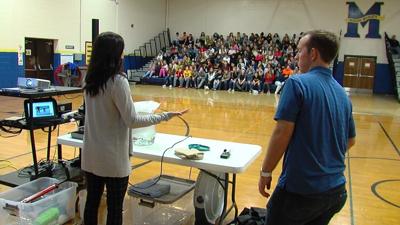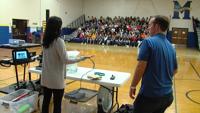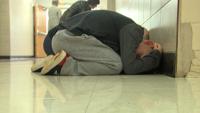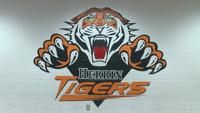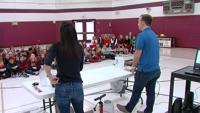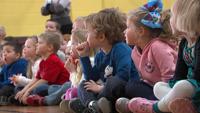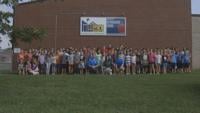WSIL � The WSIL Weather Academy continues their journey to local schools this week in an effort to educate students about science and weather. This week they travel to the Marion Junior High School.
Donna Bragee, a Science Teacher at the Junior High, says, "I thought the weather academy was a wonderful opportunity for our students to experience science, and everybody deals with weather in their every day lives, and not only could they make that connection, but they also were able to make the connection of a hands on experience. So you went through all the stages of weather; winds and breezes and land currents, high pressure, low pressure, and the list goes on, so what an opportunity."
The weather academy often promotes interactive learning, but we spoke to a teacher who says, another great way to engage the brain is through the arts.
Elizabeth Byassee Shore, the school’s Music Teacher, explains, "When you’re singing or playing a piece of music you’re doing so many things with your brain, all of those syntaxes are forming, you’re singing, you’re singing in a language, you’re doing dynamics, you’re reading notes and rhythms, you’re listening so it’s just the pathways in your brain that are being created are just, you’re multi-tasking basically just on a continuous level."
Just like hands on learning in science.
Bragee elaborates, "The more you can relate just like you did with your experience today, to their everyday life, the better off the kids like it."
Students can benefit heavily from being involved in a music.
Byassee Shore states, "It been proven that if you study music over a period of time that your test scores on all of the standardized test do go up so we really encourage the students to be multi-faceted."
Bragee says they use music to facilitate learning in other areas, "Some kids are tactile and they want to touch and feel and build, and others have no interest in that at all. So we’ve even made little jingles before to help them learn a concept, so then that way it brings in the music department as well."
Learning music in addition to the traditional curriculum can help prepare theses students for their future.
Byassee Shore says, "With the 21st century goals for the work place, one of the highest things that they’re needing right now is creativity and the best way you can get creativity is to participate in music. Obviously you have to have the science skills, the math skills, the English skills but if you don’t have those creativity skills and you don’t know how to work together with somebody then you aren’t going to be successful in the workplace today."
Shore also says music can help develop new pathways for thinking, "Students don’t even realize what they’re doing. When I break it down for them I’m like look at what you just did. I mean it’s like seven or eight different things and that’s why. It forms those syntaxes in your brain that carry over to everything."
Whether it’s music, science, or both, Bragee says preparing these young people for life is why she does what she does, "Education is something that you take with you the rest of your entire life, and what better way to help be a stepping stone in somebody’s career, life, choices, I don’t know it’s just a wonderful opportunity, kids are great."
Our News 3 Meteorologists will continue their journey to schools across the region through the end of the school year. Next week the academy will be taking us to Desoto Grade School.

